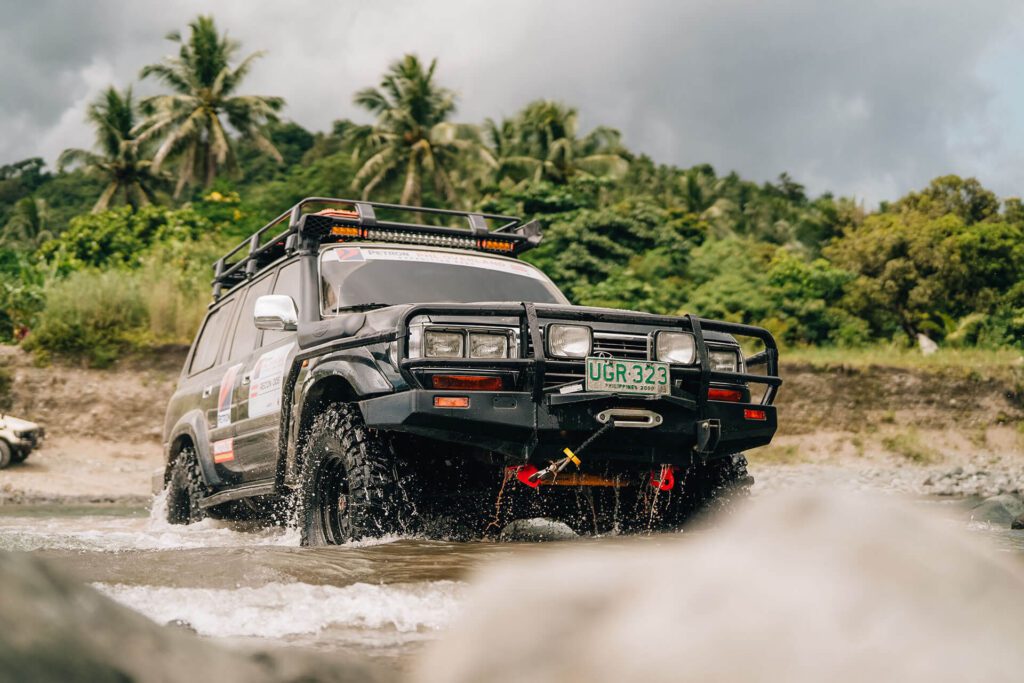Off-road adventures offer thrilling opportunities to explore remote and rugged landscapes, from rocky mountain trails to sandy desert dunes. Whether you’re an experienced off-roader or a novice looking to venture off the beaten path, proper preparation and knowledge are essential for a safe and enjoyable experience. In this comprehensive guide, we’ll share valuable tips and advice to help you embark on unforgettable off-road adventures and make the most of your time exploring the great outdoors in your vehicle.
1. Choose the Right Vehicle
Selecting the right vehicle for off-road adventures is crucial to ensure capability, reliability, and safety in challenging terrain. Consider factors such as ground clearance, four-wheel drive (4WD) or all-wheel drive (AWD) capability, suspension articulation, and off-road features such as skid plates, locking differentials, and off-road tires. While dedicated off-road vehicles such as SUVs, trucks, and Jeeps are popular choices, some crossover SUVs and even certain sedans can handle light off-road trails with the right modifications and equipment.

2. Know Your Vehicle’s Limits
Before hitting the trails, take the time to familiarize yourself with your vehicle’s capabilities and limitations. Understand the ground clearance, approach, departure, and breakover angles, as well as the maximum fording depth and axle articulation. Knowing your vehicle’s limits will help you navigate challenging terrain safely and avoid getting stuck or causing damage to your vehicle. If you’re unsure about a particular obstacle or trail, err on the side of caution and choose an alternative route or seek assistance from more experienced off-roaders.
3. Invest in Essential Gear and Equipment
Preparing for off-road adventures requires the right gear and equipment to handle a variety of situations and emergencies. Some essential off-road gear includes:
- Recovery gear: Tow straps, winches, recovery tracks, and D-ring shackles for self-recovery and assisting other vehicles.
- Communication devices: Two-way radios, satellite phones, or cell phone signal boosters for staying connected in remote areas.
- Navigation tools: GPS devices, maps, and compasses to navigate unfamiliar terrain and avoid getting lost.
- Emergency supplies: First aid kit, fire extinguisher, survival gear, and extra food and water in case of emergencies.
- Vehicle maintenance tools: Basic tools, spare parts, and fluids for performing on-the-trail repairs and maintenance.
Investing in high-quality gear and equipment is essential for off-road safety and preparedness, so don’t skimp on essentials and prioritize reliability and durability.
4. Plan Your Route and Research Trails

Before embarking on an off-road adventure, research potential trails and routes to ensure they align with your skill level, vehicle capabilities, and personal preferences. Consult off-road guidebooks, websites, and forums for trail descriptions, difficulty ratings, and current trail conditions.
Pay attention to factors such as trail length, elevation gain, terrain type, and potential hazards such as steep inclines, water crossings, and rock obstacles. Planning your route in advance allows you to anticipate challenges, make informed decisions, and enjoy a smoother and more enjoyable off-road experience.
5. Travel with a Group or Off-Road Club
Exploring off-road trails with a group or off-road club offers numerous benefits, including safety in numbers, camaraderie, and shared knowledge and expertise. Joining a group allows you to learn from more experienced off-roaders, gain confidence in your abilities, and tackle more challenging trails with support and assistance.
Additionally, traveling in a group provides added security and peace of mind in case of emergencies, breakdowns, or unexpected obstacles on the trail. Whether you’re a solo adventurer or prefer the company of others, consider joining an off-road club or organizing group outings to maximize safety and enjoyment on your off-road adventures.
6. Practice Leave No Trace Principles

Responsible off-roading involves minimizing your environmental impact and preserving the natural beauty of off-road trails for future generations to enjoy. Practice Leave No Trace (LNT) principles, including:
- Pack it in, pack it out: Carry out all trash, waste, and debris, and leave the trail cleaner than you found it.
- Stay on designated trails: Avoid creating new trails or damaging vegetation by staying on established routes and designated off-road areas.
- Respect wildlife: Observe wildlife from a distance and avoid disturbing or feeding animals in their natural habitat.
- Minimize noise pollution: Keep noise levels to a minimum to avoid disturbing wildlife and fellow trail users.
By practicing LNT principles, you can help preserve off-road trails and promote responsible stewardship of natural resources for future generations of outdoor enthusiasts to enjoy.
7. Be Prepared for Emergencies
Off-road adventures come with inherent risks, so it’s essential to be prepared for emergencies and unexpected situations. Before hitting the trails, inform someone of your travel plans and expected return time, and carry a personal locator beacon (PLB) or satellite messenger for emergency communication and tracking. Familiarize yourself with basic off-road recovery techniques and know how to use your vehicle’s recovery gear effectively in case of getting stuck or stranded. Additionally, consider taking a basic off-road driving course or wilderness first aid training to enhance your skills and confidence in handling emergencies off-road.
8. Respect Trail Etiquette and Other Users
When exploring off-road trails, it’s essential to respect trail etiquette and other trail users, including hikers, bikers, and equestrians. Yield the right-of-way to non-motorized users and slow down when passing pedestrians or cyclists to avoid dust and noise disturbance. Maintain a safe and courteous distance from other vehicles on the trail, and communicate with hand signals or two-way radios to coordinate passing or trail conditions. By respecting trail etiquette and other users, you contribute to a positive and enjoyable off-road experience for everyone involved.
9. Practice Safe and Responsible Driving
Off-road driving requires a different set of skills and techniques than driving on paved roads, so it’s essential to practice safe and responsible driving habits off-road. Some tips for safe off-road driving include:
- Maintain a safe speed: Slow down and maintain a steady speed to navigate challenging terrain safely and avoid losing control of your vehicle.
- Use proper braking techniques: Brake gently and evenly to avoid skidding or locking up the wheels, especially on steep descents or loose surfaces.
- Choose the right gear: Select the appropriate gear for the terrain and incline to maintain traction and control, especially when climbing or descending hills.
- Keep a safe distance: Maintain a safe distance from other vehicles on the trail to avoid collisions and allow for maneuvering and recovery if necessary.
- Observe trail conditions: Pay attention to trail conditions and adjust your driving technique accordingly, such as reducing speed on slippery or muddy sections.
10. Enjoy the Journey and Take in the Scenery
While off-road adventures are often focused on reaching a destination or conquering challenging terrain, don’t forget to slow down and enjoy the journey along the way. Take breaks to stretch your legs, snap photos of scenic vistas, and immerse yourself in the natural beauty of off-road trails. Be mindful of your surroundings, wildlife, and unique geological features, and appreciate the sense of freedom and adventure that off-road exploration provides. Remember that off-road adventures are as much about the journey as they are about the destination, so savor every moment and create lasting memories of your outdoor adventures.
Summing Up
Off-road adventures offer an exciting opportunity to immerse yourself in the great outdoors and explore rugged terrain that is inaccessible by conventional vehicles. By following these tips for off-road exploration, you can embark on safe, enjoyable, and memorable adventures in your vehicle.

 Top 10 Fastest Bikes in the World (2024 Edition)
Top 10 Fastest Bikes in the World (2024 Edition) Top 10 German Cars That Define Excellence in 2024
Top 10 German Cars That Define Excellence in 2024